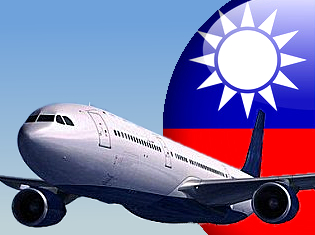 Taiwan will hold a public hearing on Wednesday regarding proposals to allow casino gambling within its mainland area, rather than restricting the establishments to the country’s outlying islands. In May, Taiwan’s cabinet approved draft legislation that would allow the development of an unspecified number of casinos in areas like the Matsu Islands, where voters approved the notion of hosting a local casino in a July 2012 referendum. But the casino bill has stalled in the legislature and the current political session closes at the end of December.
Taiwan will hold a public hearing on Wednesday regarding proposals to allow casino gambling within its mainland area, rather than restricting the establishments to the country’s outlying islands. In May, Taiwan’s cabinet approved draft legislation that would allow the development of an unspecified number of casinos in areas like the Matsu Islands, where voters approved the notion of hosting a local casino in a July 2012 referendum. But the casino bill has stalled in the legislature and the current political session closes at the end of December.
At the time the draft law was approved, Transportation Minister Yeh Kuan-shih dismissed suggestions that Taiwan was anticipating building casinos anywhere outside Matsu. In February, Premier Jiang Yi-huah had described proposals to set up a Las Vegas Strip-style casino zone in New Taipei City as “problematic” given the government’s emphasis on Matsu.
But amendments to the law have since been proposed that would authorize casino development in the Taoyuan Aerotropolis project, a business-friendly zone adjacent to the Taoyuan International Airport about 40km from Taiwan’s capital Taipei. In October, the transportation minister said the Aerotropolis might be a more “practical” and “feasible” location for casino development.
Union Gaming Group analysts suggested the airport proposal represented an acknowledgement that casinos in the Matsu or Kinmen coastal areas would largely depend on visitors from the Chinese mainland. As such, they would be vulnerable to the whims of Chinese officials, some of whom have already threatened to block Chinese citizens from traveling to Taiwan for gambling purposes.
Another amendment seeks to apply the draft law’s scope beyond the Offshore Islands Development Act to include “other relevant acts.” Each of the proposed amendments was the work of members of the ruling Kuomintang party. The Taipei Times quoted Buddhist busybody Shih Chao-hwei saying the amendments had exposed the government’s previous statements on limiting casinos to Matsu as the lies they always were. Shih also wondered if the government was “building the Taoyuan Aerotropolis just so that they can build casinos?”
While companies such as Galaxy Entertainment Group have publicly mused about the idea of building a Taiwanese casino, the only serious effort to date has come from Weidner Resorts. But critics view Weidner’s Matsu plan with skepticism, given both the unpredictability of the Chinese government and the estimated $2.5b Weidner needs to spend to upgrade the region’s infrastructure to handle the expected influx of tourists – part of the $8b Weidner has pledged to devote to the project. Earlier this year, an unidentified gaming analyst told Foreign Policy magazine that Weidner’s plan was “insane … He could spend that money, but there’s no way he could make it back.”
